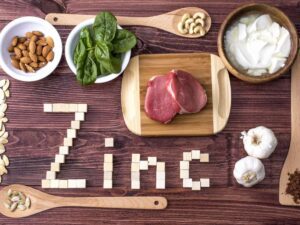ButSpeak.com
News which Matters.

Zinc deficiency is a silent health concern that can affect your immune system, skin health, and overall well-being. This essential nutrient plays a crucial role in various bodily functions, including immune response, wound healing, and cell growth. It’s naturally found in foods like shellfish, nuts, meat, fish, legumes, and whole grains. However, inadequate zinc intake can lead to significant health issues. Here’s what you need to know about zinc deficiency and its impact on your health:
Hidden Signs and Symptoms of Zinc Deficiency: Zinc deficiency can weaken your immunity, leading to frequent illnesses. It may also cause appetite loss, delayed growth, skin changes, and exacerbate conditions like eczema. Other symptoms include hair loss, slow wound healing, unintentional weight loss, sexual dysfunction, low energy levels, diarrhea, and vision-related issues.
Zinc Daily Requirement: According to the National Institutes of Health, adult males need 11mg/day, while adult females require 8mg/day of zinc. Pregnant and breastfeeding women require higher amounts – 11mg/day and 12mg/day respectively.
Zinc Toxicity: While zinc is crucial for health, excessive intake can lead to toxicity. Symptoms may include nausea, vomiting, diarrhea, abdominal cramps, and headaches. It’s essential to obtain zinc primarily from dietary sources and use supplements only under medical guidance.
If you’re experiencing any symptoms of zinc deficiency, consult your healthcare provider for proper evaluation and guidance. Ensure a balanced diet rich in zinc-containing foods to support your overall health and immunity.